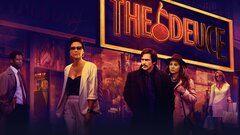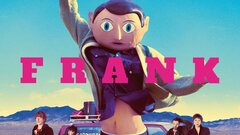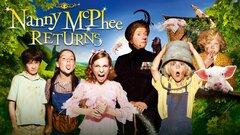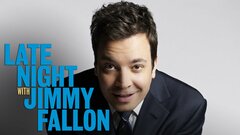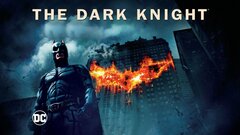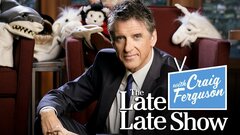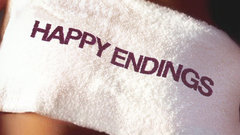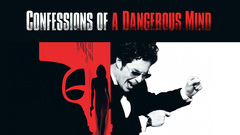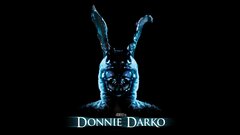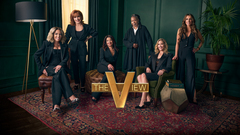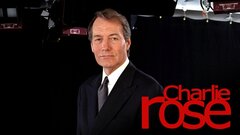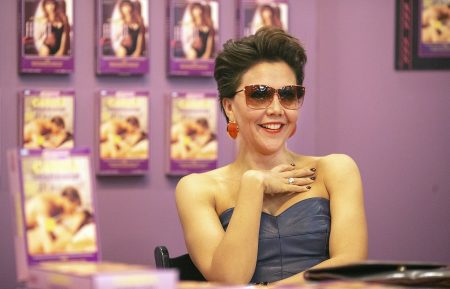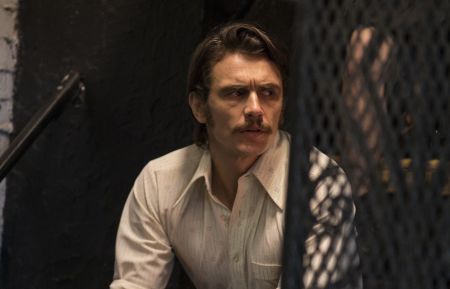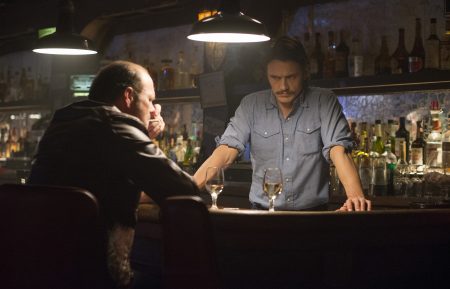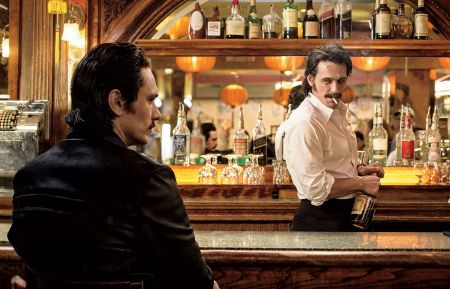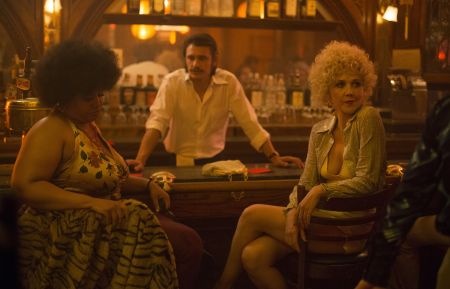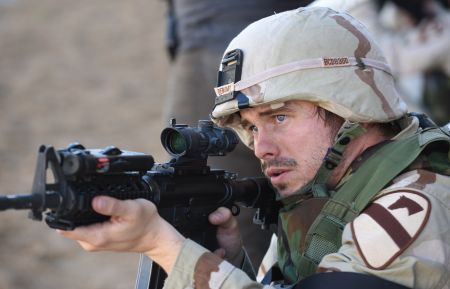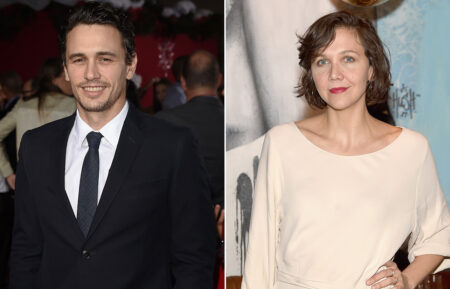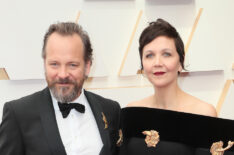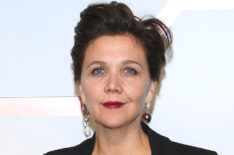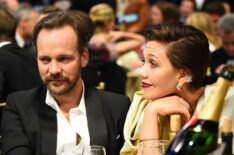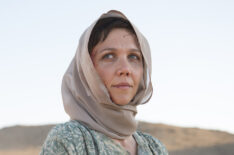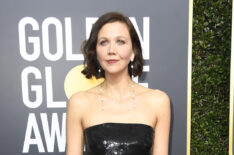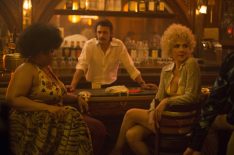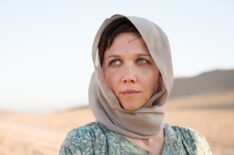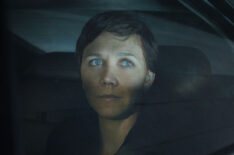In only a few short years, Maggie Gyllenhaal built a solid reputation as a talented, cerebral actress in independent films. With her non-conformist flair and penchant for examining social issues, Gyllenhaal offered a different voice of young Hollywood at the start of the millennium. Though a Hollywood native who grew up with filmmaking parents - not to mention entered performing alongside her brother, actor Jake Gyllenhaal - the actress was raised in a household that valued education, intellect and liberal politics. Thanks to her director father, Stephen Gyllenhaal, she gained valuable experience with her first three films, "Waterland" (1992), "A Dangerous Woman" (1993) and "Homegrown" (1998).
After co-starring with her brother in the indie hit, "Donnie Darko" (2001), Gyllenhaal came into her own with a daring breakout performance as a woman with a strange addiction to sadomasochism in the independent dark comedy, "Secretary" (2002), which earned the actress her first Golden Globe nomination. Settling into a career that consisted of exemplary performances in such varied films as "Happy Endings" (2005), "Stranger Than Fiction" (2006) and as Rachel Dawes in "The Dark Knight" (2008), Gyllenhaal reached new heights after her Oscar-caliber performance in "Crazy Heart" (2009), which promised even greater things from the talented young actress.
Maggie Gyllenhaal was born on Nov. 19, 1977, in New York City. (While doing publicity for "Frank" in 2014, she revealed that she had recently learned that her birth name was Margolit Ruth Gyllenhaal, and not Margaret as she had always assumed.) Her mother, Naomi Finer, was a PBS children's television producer-turned-screenwriter (Oscar nominated for 1988's "Running on Empty"), while her father, Stephen Gyllenhaal, was a published poet and Emmy-nominated director, whose films included "A Killing in a Small Town" (1990), "Losing Isaiah" (1995) and "Homegrown" (1998). When Gyllenhaal was a year old, her parents' rising careers led the family to move to Los Angeles, where they gave birth to son Jake two years later.
Despite the Gyllenhaal's ascent in the filmmaking business, their home revolved more around intellectual pursuits than Hollywood indulgence; their circle of family friends including academics, artists, and activists. Brother and sister attended the prestigious Harvard-Wakeland prep school, where Gyllenhaal was an excellent student and active in the drama program. She was also a self-proclaimed rebel who tried to distance herself from the wealthy lifestyle of her classmates, despite appearances on the big screen in "Waterland" (1992), directed by her father and starring Jeremy Irons and Ethan Hawke, and "A Dangerous Woman" (1993), also directed by her father.
In 1995, Gyllenhaal graduated from high school and moved to New York to attend Columbia University, again trying to establish her independence from Hollywood privilege by living off campus in a cheap apartment in Brooklyn. She had made a promise to herself to put her acting career on hold while focusing on a degree in literature, but during her time at Columbia, she did appear in two more of her father's productions including a pair of television movies and the feature "Homegrown" (1998), which also included brother Jake in a supporting role.
After receiving her bachelor's degree from Columbia in 1999 - the same year her brother entered the school as a freshman - Gyllenhaal spent a summer in London, filled with theatrical training at the Royal Academy of Dramatic Arts before returning home to look for work in independent films - a genre she felt would provide her with more freedom to choose roles that spoke to her sensibilities. She got off to an auspicious start playing a Satan-worshiping make-up artist in director John Waters' Hollywood satire, "Cecil B. Demented" (2000). She enjoyed a run onstage as a stripper in Patrick Marber's Tony-nominated play "Closer;" first with the Berkeley Repertory Theater, followed by a run at the Mark Taper Forum in Los Angeles. Back on screen, Gyllenhaal followed up with an appearance in one of the boldest space/time continuum dramas ever to involve an evil rabbit, "Donnie Darko" (2001), playing the sister of real-life brother Jake in the indie cult favorite. Quickly building a resume of decidedly bold, offbeat choices, she landed a few quirky character roles in mainstream young adult movies like "Riding in Cars with Boys" (2001) and "40 Days and 40 Nights" (2002), but that was before her memorable breakout in 2002. Director Stephen Shainberg's "Secretary" (2002), a film about a timid young secretary who breaks out of her shell through an S&M relationship with her boss, was the type of film that could either make or break a career. It made a sensation out of Gyllenhaal, who worked painstakingly to create a character that would inspire audiences to question their notions of love, pain, and personal salvation. She also turned standard feminist notions on their ear with a character who was a victim - but on her own terms and for her own empowerment. Gyllenhaal's achievement was stunning, smart, and also showcased a different kind of sexiness than was common in Hollywood at the time. It was no surprise that come awards season, the newly minted star would earn a handful of critical accolades, including a Golden Globe Award nomination for Best Actress.
Continuing to push the artistic envelope, Gyllenhaal was next cast in a supporting role in Charlie Kaufman's mind-bending film-about-writing-a-film, "Adaptation" (2002), followed up with "Casa de Los Babys" (2003), John Sayles' ensemble film about a group of women who travel to South America to adopt babies. That film only received limited release but critical kudos for its sensitive, cross-cultural examination of motherhood. Still finding her footing, Gyllenhaal took another stab as "the rebel" in a more mainstream movie, "Mona Lisa Smile" (2003), in which she played a hell-raising student of a liberal instructor (Julia Roberts) at 1950s Wellesley College.
She returned to the Mark Taper Forum where she had a successful run in "Homebody/Kabul," playing the daughter of British tourist killed while traveling in Afghanistan. She further investigated murky international relations as an American woman detained in China on suspicion of terrorism and forced to defend her own rights to an interrogator (Ken Leung) in Sidney Lumet's harrowing telepic, "Strip Search" (HBO, 2004). Further displaying her interest in political issues, Gyllenhaal was visible during the 2004 presidential elections as part of the "Declare Yourself" campaign to encourage young adults to register and vote. Earlier in the year, Gyllenhaal, who had studied Eastern Religions at Columbia, showed support for the Tibet House organization at a Carnegie Hall fundraiser.
After a compelling performance as a conflicted con artist in the otherwise middling crime drama "Criminal" (2004), Gyllenhaal turned in one her most winning performances to date in director Don Roos' seriocomic "Happy Endings" (2005). As the morally ambiguous singer Jude, who seduces a closeted gay youth (Jason Ritter) before turning her sights on his lonely, wealthy father (Tom Arnold), Gyllenhaal dazzled with her subtle, shifting behaviors, creating a compelling, fully realized character. The politically-minded actress next appeared in two films with very different approaches to exploring the aftermath of September 11th. The limited release indie "The Great New Wonderful" (2005) featured five interwoven stories told against the backdrop of an anxious, post-9/11 New York City, with Gyllenhaal playing the ruthless owner of a posh pastry shop who seeks to overthrow the reigning Queen of Cake (Edie Falco). In her biggest Hollywood production yet, she costarred in Oliver Stone's fact-based "World Trade Center" (2006) as Allison Jimeno, wife of a port authority officer (Michael Pena) trapped beneath the rubble of the towers and awaiting rescue. The film opened to generally positive reviews, though was not without detractors who were opposed to its inaccuracies and that it did not delve deeper into the issues as other films by Stone, a renowned conspiracy theorist. Gyllenhaal gave strong performances in several more films in 2006, including "Trust the Man," a romantic comedy following the escapades of two Manhattan couples, and "SherryBaby," an independent drama for which she earned another Golden Globe nomination for her portrayal of a recovering drug user trying to reconnect with her estranged daughter. Gyllenhaal voiced Zee, the Goth babysitter in the animated hit "Monster House" (2006), before a wonderfully endearing supporting turn in "Stranger than Fiction," as an anti-establishment bakery owner sweet on her straight-laced IRS auditor (Will Ferrell), who happens to be plagued by running narration in his head by a famous novelist. She rounded out the year by giving birth to a daughter and announcing her engagement to her boyfriend of four years, actor Peter Sarsgaard.
In 2007, Gyllenhaal lent her voice to a video campaign for TrickleUp, a non-profit micro-financing organization, and contributed artwork to raise funds for the Food Bank for New York and the Lunchbox Fund of South Africa. She was slated to return to theaters in 2008 in the role of Rachel Dawes in the Batman sequel (as well as Heath Ledger's final completed film), "The Dark Knight," replacing Katie Holmes who dropped out of the film franchise to do other work and to be a mother. Though Gyllenhaal sparkled in the role, the film itself became one of the biggest box office hits of all time while riding a wave of near-unanimous critical praise. Following an off-Broadway turn opposite her husband in a revival of Anton Chekhov's "Uncle Vanya" (2009), she delivered one of her most engaging performances by playing a divorced journalist and single mom who covers and eventually falls for an older, alcoholic country music singer (Jeff Bridges) down on his luck in "Crazy Heart" (2009). The small, character-driven drama earned widespread critical praise, particularly for Bridge's compelling portrayal of a Merle Haggard-like artist. But Gyllenhaal also received her share of acclaim, including an Academy Award nomination for Best Supporting Actress.
After a supporting role in the children's sequel "Nanny McPhee Returns" (2010), Gyllenhaal starred in the indie comedy-drama period piece "Hysteria" (2011), a Victorian-era romance about the invention of the vibrator by a British doctor. The following year, she starred in the education drama "Won't Back Down" (2012) and the HBO adaptation of the Jonathan Franzen best-seller "The Corrections" (2012). Gyllenhaal then played the First Lady of the United States in the action thriller "White House Down" (2013) before returning to her indie roots in the quirky comedy "Frank" (2014), based on the real life of British post-punk rocker Chris Sievey, who adopted the persona of singer/songwriter Frank Sidebottom by never appearing in public without a large papier-mache cartoon head.











